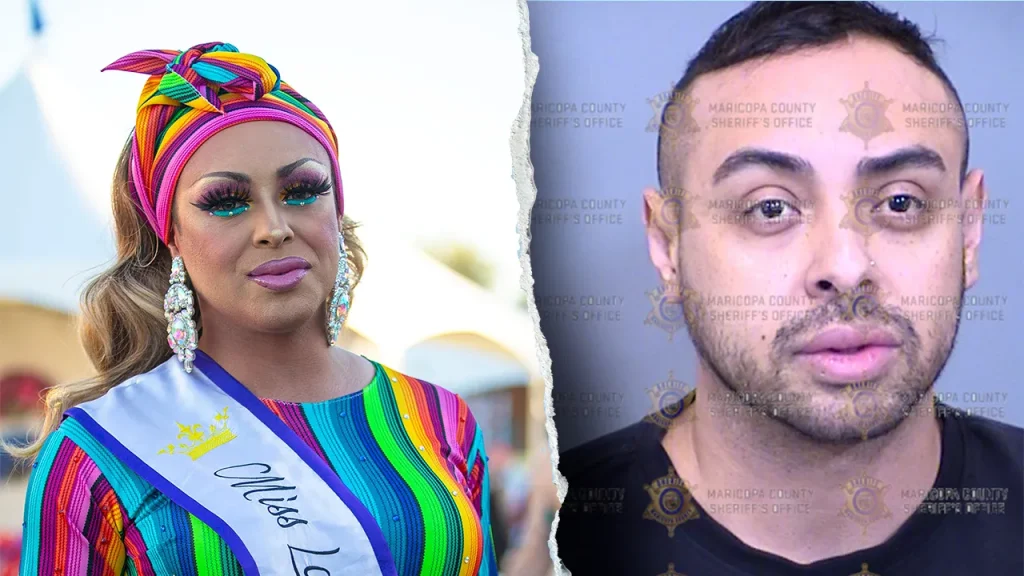Drag Performer’s Legal Troubles Highlight Online Safety Concerns for Minors
In a troubling case that has shaken the Phoenix LGBTQ+ community, 35-year-old Michael Browder, known by his drag persona Aubrey Ghalichi, finds himself facing serious legal consequences after allegedly engaging in sexual activity with a 13-year-old boy. The situation unfolded after the minor reportedly misrepresented himself as an adult on a dating application, creating a complicated scenario that highlights the dangers minors face online and the responsibilities adults bear when engaging with potential partners met through digital platforms. According to court documents, Browder allegedly admitted to the encounter but maintained he believed the minor was 18 or 19 years old. The performer, who had previously appeared at Phoenix Pride Festival, now faces two counts of sexual conduct with a minor—charges that have led to his release on a $10,000 bond with strict conditions including GPS monitoring and prohibitions against contact with children.
The case details reveal a concerning pattern where the young boy admitted to investigators that he had posed as an 18-year-old on the dating application and had arranged meetings with two different adult men for sexual encounters. While the boy initially claimed not to know the identities of these individuals, investigators were able to recover chat logs from the minor’s laptop that allegedly linked Browder to the case. When interviewed by Phoenix police on September 16, Browder reportedly acknowledged meeting and having sexual relations with the victim but insisted on his belief that the person was of legal age. Court records indicate Browder claimed the victim’s apartment was too dark for him to accurately determine the boy’s actual age—a defense that raises questions about due diligence in such situations.
This incident has sent ripples through the Phoenix community, particularly affecting the upcoming Phoenix Pride Festival where Browder was scheduled to perform. Festival organizers have removed Browder from their lineup, releasing a statement emphasizing that while he has not been convicted, they felt compelled to take action based on available information to “ensure a safe and affirming environment” for festival attendees. Their statement described the alleged actions as “reprehensible and entirely contrary to what Phoenix Pride stands for,” demonstrating the organization’s commitment to maintaining community trust and upholding their values even before legal proceedings have concluded.
The case touches on numerous societal issues including the safety of minors online, the responsibilities of adults when using dating applications, and the potential for serious legal consequences even in situations where deception regarding age may have occurred. While the legal system will ultimately determine Browder’s culpability, the incident serves as a stark reminder of the vulnerabilities present in digital communication platforms where age verification systems can be easily circumvented. For parents and guardians, this case underscores the importance of monitoring children’s online activities and having ongoing conversations about internet safety and the potential dangers of misrepresenting oneself online.
From a broader perspective, this case also highlights how quickly allegations of misconduct can impact an individual’s professional life and community standing. Browder, who had established a presence in the Phoenix drag performance scene, now faces not only serious legal charges but also the immediate consequence of being removed from a significant community event. This swift response from Phoenix Pride demonstrates how organizations increasingly prioritize community safety concerns over waiting for the legal process to conclude—a reflection of changing societal expectations around how institutions respond to allegations of misconduct involving minors.
As this case moves through the legal system, it will likely continue to generate important conversations about responsibility, safety, and accountability in the digital age. The second adult mentioned by the minor has not been identified or charged at this time, according to police statements. For the 13-year-old victim, this situation represents a profound breach of the protections society attempts to place around minors, regardless of any misrepresentation that may have occurred. Moving forward, this case may potentially influence how dating applications approach age verification and how communities address the complex intersection of online interaction, legal responsibility, and protection of vulnerable individuals in an increasingly connected world.







